Adolescent Coping with Depression Course
The Adolescent Coping with Depression Course (CWD-A) combines cognitive and behavioral strategies aimed at addressing the types of problems commonly found in depressed adolescents. The CWD-A includes the therapist leader's manual and a student workbook.
Please complete this short form for access to the free .pdf program downloads.
The CWD-A is based on the social learning theory analysis which proposes that episodes of depression are associated with a decrease in pleasant and an increase in unpleasant person/environment interactions.
The CWD-A is designed for use with groups of four to eight adolescents, or it can be modified for use on an individual basis. The treatment sessions are conducted as a class in which a group leader teaches adolescents a variety of skills for successfully controlling depression.
Eight core CBT skills are taught to the participants:
Mood Monitoring
Social Skills
Pleasant or Fun Activities
Relaxation techniques
Constructive Thinking
Communication
Negotiation and Problem Solving
Maintenance of Gains
Each adolescent is provided with a student workbook, which is closely integrated with course discussion and group activities. The workbook contains brief readings, structured learning tasks, self-monitoring forms, homework assignments, and short quizzes.
An important feature is that the course is non-stigmatizing, with the treatment presented and conducted as a class in coping skills rather than as a “therapy.” It is a cost-effective, community-oriented approach that can successfully reach the great majority of depressed adolescents who typically do not make use of the services of school counselors, therapists, and other mental health professionals.
The CWD-A was originally designed to be completed in 16 two-hour sessions scheduled over an 8 week span of time. However, an adaptation guide for providing the content in different formats (e.g. shorter sessions, a modular format, or on an individual basis) is provided as a .pdf on our download page.
The CWD-A was initially developed and evaluated, then examined for efficacy starting with the initial project in the mid 80’s (Clarke, 1985) with 21 adolescents. Only one teen reported continued symptoms of depression at the end of treatment. Since that initial study there have been four large randomized controlled trials numerous projects and publications documenting the effectiveness of this program for adolescent depression. The combined results have shown that the program is effective at helping to alleviate the symptoms of depression for adolescents.
Evidence-based Program Evaluation
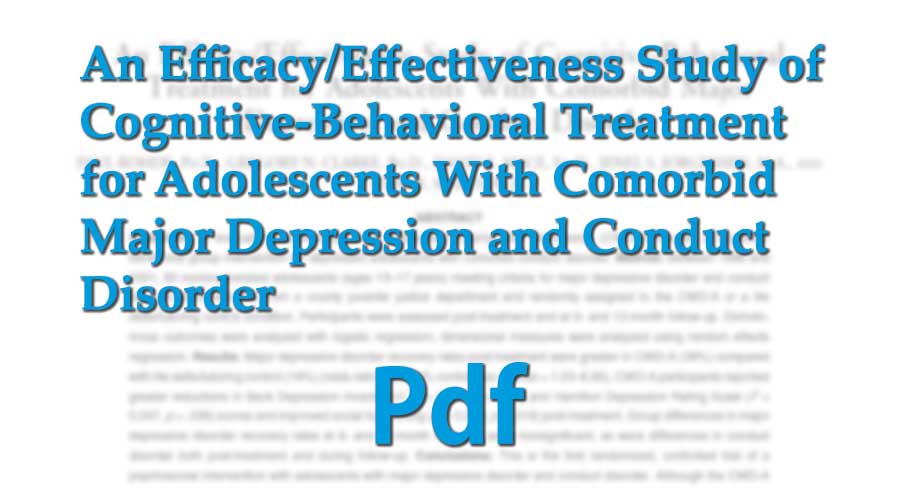
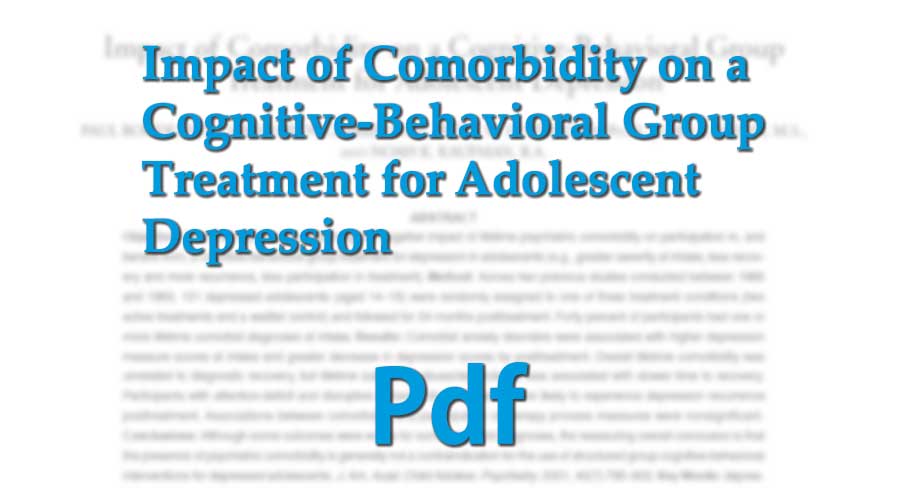
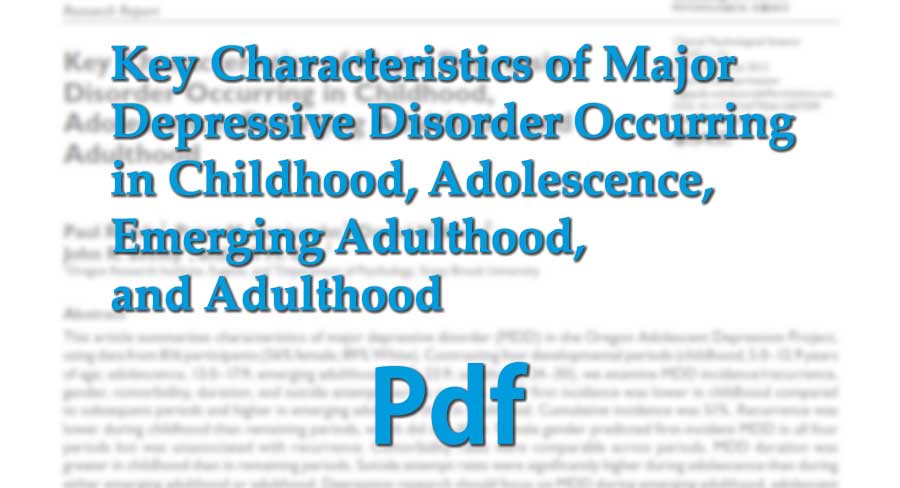
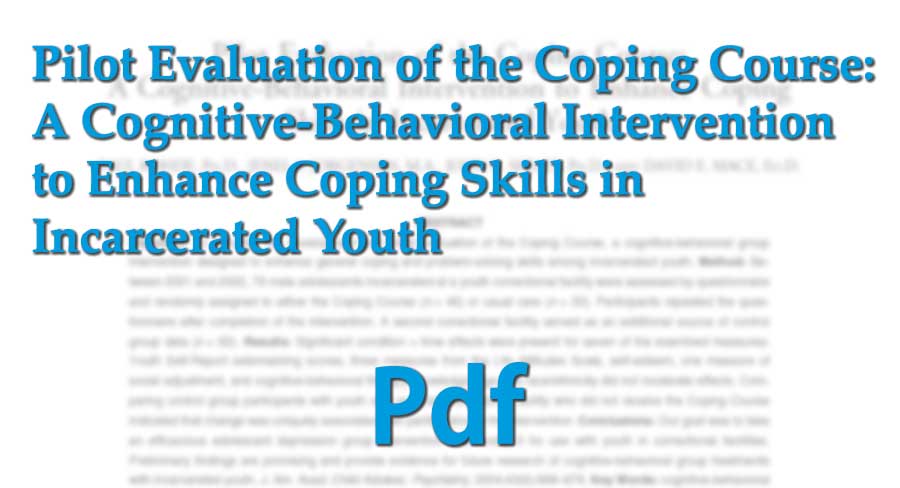

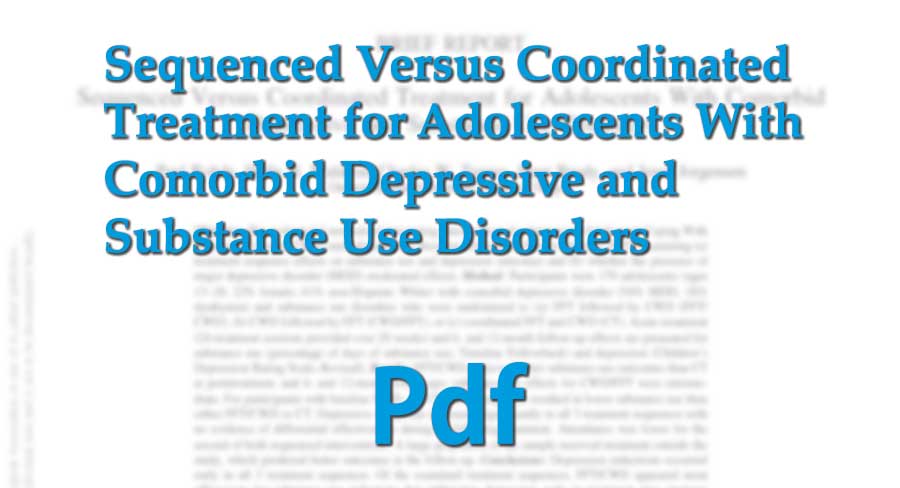
The Adolescent Coping with Depression Course is listed on the following registries:
SAMHSA’s National Registry of Evidence-based Programs and Practices
Blueprints for Healthy Youth Development
Promising Practices Network on Children, Families, and Communities
Early Intervention Foundation
The Clearinghouse for Military Family Readiness
The California Evidence-Based Clearinghouse for Child Welfare (CEBC)
Professional Development and Program Support Materials
Saavsus offers printed materials for the CWD-A along with an interactive program training DVD featuring program development staff.
Testimonials
“As a teen I experienced family, behavioral, and depression problems. I was quick to anger and often wasn’t aware of what was causing my negative moods or what to do about them. I began learning how to cope with things through contact with wonderful people and programs that came my way. To this day I use the breathing techniques from the relaxation methods taught to me in the Coping with Depression course. And I know how to look for some of the underlining causes of my sadness that I sometimes still experience (negative thinking and actions). Even after all these years, I still use the handbook to find guidance for a smile.”
“I have found the Adolescent – Coping with Depression course to be highly flexible when working with a variety of different populations. For example, I conducted the groups with developmentally disabled individuals and found it easy to adapt the course material to their needs; such as providing pictorial examples in place of verbal examples, simplifying the language, deleting material that is too challenging, etc. All of our participants reported that the skills learned in group improved their overall mood. They were able to use the language/concepts taught in class when describing the benefits to participating in group (i.e., ‘I noticed a downward spiral’, ‘I used my friendly skills’, etc.).”
“I personally couldn’t agree more that if adolescents used the Adolescent Coping with Depression Course materials, they could improve their chances of learning to live with depression or to beat it that much sooner. I think if this program could be set up in the schools as part of the curriculum in health classes, it would be a great way to decrease depression and tragedy among high school students.”
“Thank you for giving me the chance to participate in the evaluation of the Mastering the Coping Course program. The Resources section was very helpful, and the video vignettes are excellent and facilitate learning by clearly showing us how to handle situations. I also like the “common problems” slides and copies of forms that can be used with clients. The curriculum is fantastic!”
“I enjoyed the mixture of teaching modalities in the Mastering the Coping Course program - listening, reading, video, quizzes, etc. Therefore, I liked all aspects of the program.”

